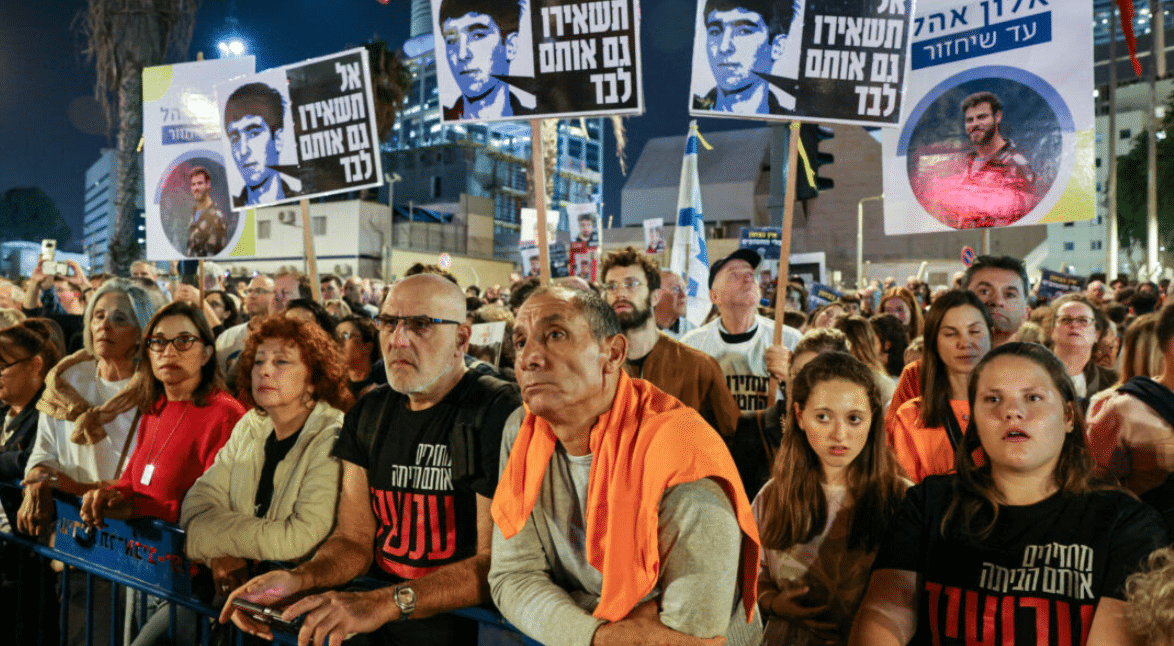When the temporary ceasefire between Hamas and Israel collapsed on Friday, it was because of the women. The deal had been that Hamas would free most of the remaining women and children in its captivity in exchange for a pause in fighting. Hamas still holds 137 Israeli hostages, among them 17 women. In talks last week, Hamas refused to send a list of the next batch of women—apparently around 10—to be released, but suddenly offered to start discussing the release of elderly men instead.
The Israelis were stunned. “Our deal was [releasing] the women,” one senior Biden administration official told me about the collapse and the Israelis’ thinking. “We’ll take the men, sure, but they’re not going to jump the line.” Still, Hamas refused to release the remaining women in its custody, the ceasefire collapsed, and we’re now back to watching the resumption and expansion of Israel’s military operation in Gaza.
But why did Hamas refuse to release the rest of the female captives? Speaking on Monday during his daily briefing, State Department spokesman Matthew Miller said that “it seems one of the reasons they don’t want to turn women over that they’ve been holding hostage, and the reason this pause fell apart, is because they don’t want these women to talk about what happened to them during their time in custody.”
[The Puck Report continues]
But a second senior administration official disputed that reasoning. “I don’t think Hamas gives a flying fuck” about what the hostages say when they’re released, this official contended. “What I understand is, part of the assumption is just that they don’t want to release them because they want to continue to abuse them.”
The War’s #MeToo Moment
These allegations come at a time when the Israeli government has been pushing hard the stories of Hamas’s serial, systematic rape of Israeli women on October 7. Testimony given by police, first responders, and survivors of the massacre tell a horrifying and gruesome story: women’s bodies that were found stripped naked and bleeding from their genitals; women who had knives, nails, and other objects shoved into their vaginas; women who had their breasts lopped off while still alive; women whose pelvises were broken from the sheer force of the sexual assault; women who had been gang-raped, executed, and then had their faces and genitals mutilated. “We certainly understand why our Israeli partners would be coming to the conclusion” that these women had been brutally raped, one senior administration source told me.
There were also cases of Israeli men who were raped or had their genitalia cut or shot off. In one case, a dead person’s genitals were so badly mutilated that investigators couldn’t tell if it had been a man or a woman.
We are hearing more about the sexual violence of October 7 now for several reasons. In part, this is because the evidence took time to collect—there are very few surviving victims, and some of the survivors, it seems, are still in Hamas custody. In part, the Israeli government looks to be abandoning its early attempts to shield its already traumatized population from the details. In the first days and weeks after October 7, Israeli media showed interviews with first responders who, though utterly shaken by what they had seen at the Nova rave and in the kibbutzim, spoke elliptically about the “abuse” and desecration of the bodies they had seen. Israeli news outlets were very careful about what they shared about the rapes, sometimes even adding that they had decided not to print certain details. The public had been traumatized enough, the thinking went, and telling them about such horrors would just be counterproductive at a time when the country needed to band together.
[The Puck Report continues]
And that, it seems, is the point: to make Hamas even more impossible to defend, to make the Israeli campaign against the terror organization harder to criticize, and to undermine the credibility of international organizations who have been criticizing the Israeli government. Israeli women were brutalized on October 7, and now they will help the Israeli government regain the moral high ground it has lost over the last two months.
View this Puck report form December 5th

